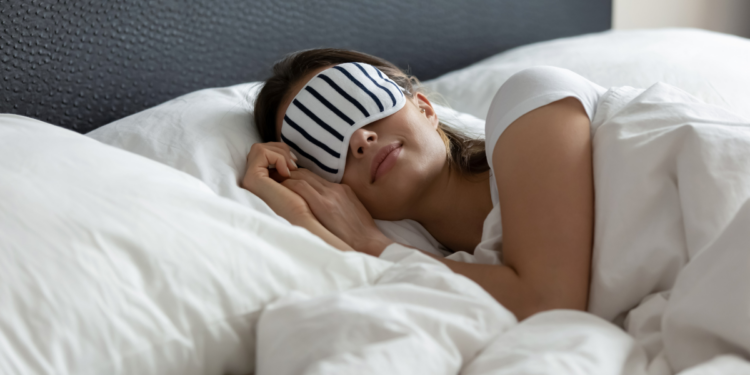A good night’s sleep is essential for physical health, mental clarity, and overall well-being. Yet, for many, restful sleep can feel elusive. The good news? Simple adjustments to your routine and environment can significantly improve the quality of your sleep.
This guide outlines seven proven tips to help you fall asleep faster, stay asleep longer, and wake up refreshed.
1. Stick to a Sleep Schedule
Consistency is key to regulating your body’s internal clock. Going to bed and waking up at the same time every day—even on weekends—helps reinforce your natural sleep-wake cycle.
- Why It Works: A consistent routine trains your body to expect sleep at a certain time, making it easier to fall asleep and wake up.
- Pro Tip: Set a reminder to wind down 30 minutes before your bedtime to prepare your mind and body for sleep.
Learn more about sleep schedules: National Sleep Foundation
2. Create a Relaxing Bedtime Routine
A calming pre-sleep routine signals your body that it’s time to wind down. Activities that promote relaxation, such as reading, meditating, or taking a warm bath, can ease the transition to sleep.
- What to Avoid: Skip stimulating activities like scrolling through your phone, watching intense TV shows, or working right before bed.
- Pro Tip: Incorporate mindfulness exercises or light stretches to relax your muscles and clear your mind.
3. Optimize Your Sleep Environment
Your bedroom should be a sleep-friendly sanctuary. Factors like temperature, lighting, and noise can significantly impact the quality of your rest.
- How to Optimize:
- Temperature: Keep your room cool, ideally between 60–67°F (15–19°C).
- Lighting: Use blackout curtains or an eye mask to eliminate light.
- Noise: Try a white noise machine or earplugs to block out disruptions.
Explore sleep environment products: Sleep Foundation Product Reviews
4. Limit Screen Time Before Bed
Blue light emitted by phones, tablets, and computers suppresses melatonin, the hormone responsible for sleep. Reducing screen time before bed helps your body prepare for rest.
- What to Do: Avoid screens at least 1–2 hours before bedtime.
- Pro Tip: Use blue light filters or apps like f.lux or enable “Night Mode” on your devices if you need to use screens in the evening.
5. Watch Your Diet and Caffeine Intake
What you eat and drink, especially close to bedtime, can affect your ability to fall and stay asleep.
- What to Avoid:
- Caffeine: Cut off coffee, tea, and other caffeinated beverages at least 6 hours before bed.
- Heavy Meals: Avoid large, spicy, or acidic meals within 2–3 hours of bedtime to prevent discomfort.
- What to Try: A light snack with sleep-promoting ingredients, like a banana with almond butter or a small bowl of oatmeal.
Learn about sleep-friendly foods: Cleveland Clinic
6. Get Regular Exercise
Regular physical activity can improve sleep quality by reducing stress and promoting relaxation. However, timing matters—working out too close to bedtime may interfere with sleep.
- Best Time to Exercise: Early morning or afternoon workouts are ideal.
- Pro Tip: If you prefer evening exercise, choose low-intensity activities like yoga or stretching to help your body unwind.
7. Manage Stress and Overthinking
Stress and anxiety are common culprits behind restless nights. Managing your thoughts and calming your mind are critical for better sleep.
- Techniques to Try:
- Journaling: Write down worries or a to-do list before bed to clear your mind.
- Deep Breathing: Practice techniques like the 4-7-8 method (inhale for 4 seconds, hold for 7 seconds, exhale for 8 seconds).
- Meditation Apps: Apps like Calm or Headspace offer guided meditations tailored to sleep.
Bonus Tip: When to Seek Help
If sleep issues persist despite trying these tips, consider consulting a healthcare provider. Chronic insomnia or sleep apnea may require professional treatment or lifestyle adjustments.
Explore sleep disorders: American Academy of Sleep Medicine (AASM)
Final Thoughts
Better sleep starts with simple, intentional changes. By sticking to a schedule, creating a calming bedtime routine, and optimizing your sleep environment, you can set the stage for restful nights and energized days.
Start incorporating these proven tips tonight and experience the transformative power of quality sleep!





















